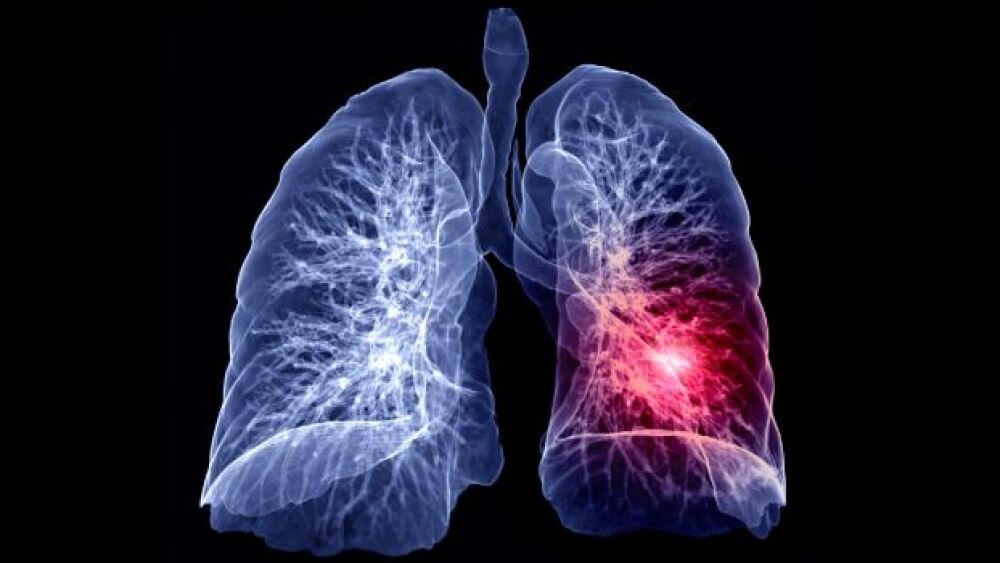Findings from a second interim analysis of a first-in-human Phase I/II clinical trial of Translate Bio’s CF mRNA candidate, MRT5005, show the drug did not significantly improve lung function in patients with CF.
Findings from a second interim analysis of a first-in-human Phase I/II clinical trial of Translate Bio’s cystic fibrosis (CF) mRNA candidate, MRT5005, show the drug did not significantly improve lung function in patients with CF.
Back in 2019, Translate Bio indicated MRT5005 led to noticeable increases in a lung function measurement in patients who received a single dose of MRT5005. Based on this finding, the company hoped to find similar benefits in multiple doses as well as at a higher dose of the agent.
In early 2020, Translate Bio received Fast Track Designation from the U.S. Food and Drug Administration for MRT5005 for CF. The Fast Track program was appointed to accelerate the development and review of MRT5005.
MRT5005 was developed by Translate Bio to treat the underlying cause of CF via the delivery of mRNA-encoding fully functional CF transmembrane conductance regulator (CFTR) protein to cells within the lung via nebulization. The Phase I/II trial was designed to evaluate the safety and tolerability of the mRNA drug candidate, both in single- and multiple-ascending doses, in patients with CF.
The second interim analysis of the study included data on the previously reported on three single-ascending dose (SAD) groups (8, 16 and 24 mg). Additional data comprising a 20 mg SAD group and data from multiple-ascending dose (MAD) groups (five once-weekly doses of 8, 12 and 16 mg) were also added to the second interim analysis. The data included a one-month follow-up after treatment to assess the primary outcomes.
Overall, repeat dosing of the CF candidate was considered well-tolerated and generally safe, with no serious adverse events reported. All treatment-emergent adverse events were mild to moderate in their severity.
The primary measure of lung function in this study, percent predicted forced expiratory volume in 1 second (ppFEV1), was also assessed as a safety measure at certain pre-defined periods throughout the trial.
According to Translate Bio, the investigators saw no pattern of increases in ppFEV1. In other words, the drug did not provide a significant improvement in lung function during the trial.
Translate Bio said the trial is still ongoing and has plans in place to soon report findings for an additional MAD dose group of 20 mg, as well as a daily dosing group of 4 mg.
“We have seen the impact that mRNA is having across the vaccine landscape, and given the novelty of its science, I am hopeful that mRNA may have a similar role in treating pulmonary diseases including CF,” said principal investigator of the Phase I/II trial Steven Rowe, M.D., who also serves as director of the Gregory Fleming James Cystic Fibrosis Center, professor in the Division of Pulmonary, Allergy and Critical Medicine at University of Alabama, Birmingham. “While innovative clinical science is often incremental, I believe that with these interim results we have gleaned important insights applicable to mRNA therapeutic development for CF.”
“This is the first time messenger RNA encoding CFTR has been administered to patients with CF through inhaled repeat doses, and I believe, this represents an important building block in our pioneering efforts to develop transformative mRNA therapeutics,” added Translate Bio’s Chief Executive Officer Ronald Renaud. “We are evaluating learnings from this trial along with findings from our ongoing CF translational research, while also advancing our next-generation CF discovery efforts.”
According to the statements made by Renaud, Translate Bio has no plans to give up on CF just yet. The company hopes to continue full steam ahead on the candidate due to its positive safety and tolerability.
“We will continue to leverage the internal capabilities that we’ve built over the last 12 to 18 months in pulmonary biology and aerosol sciences as well as the valuable partnerships established with leading academic research teams to optimize further development in our CF programs,” he said. “Our patient communities are of the utmost importance to us, and we are committed to advancing mRNA therapeutics for CF and other pulmonary diseases. This is the first step in an area with significant potential and we look forward to sharing more as we advance our development programs.”





